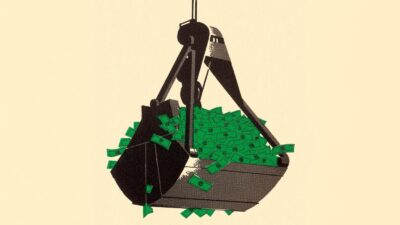-
Sort By
-
Newest
-
Newest
-
Oldest
A high US January CPI number rattled the markets before the Producer Price Index (PPI) calmed investor waters. A closer look at the data, however, shows a far from rosy picture, especially with President Donald Trump’s policies likely to push prices higher.
A world where animal spirits are running wild is also one that has temporarily divorced from fundamentals. Experience tells us this often doesn’t end well.
It’s been an astonishing two years for US equities, but the same can’t be said for global asset markets. 2025 could be a year to explore out of favour markets, according to Ruffer’s Jasmine Yeo.
The vigilantes aren’t back – yet. But the United States’ fiscal position is worse and the spectre of inflation has returned, and this time they would have a much stronger case, according to Ruffer’s Steve Russell.
Investors have concluded “ABC” – Anything But China – but there’s a compelling case for this calculated risk, according to Ruffer’s Duncan MacInnes.
Markets are expensive, driven by powerful forces which want to turn a 40 year bull market into the first ever 50 year one. That trend is not one to embrace, and standing in its way could put investors in dire straits, writes Jonathan Ruffer.
The sharp fall in markets in August was a sign of things to come, according to Ruffer, but one that investors haven’t heeded, with positioning and sentiment becoming even more extreme.
An eventual market correction won’t necessarily be marked by its depth, writes Jonathan Ruffer, but by its speed. Caution may come at a price, but investors will have a different perspective on that price once it’s been paid in full.
A recovery in the UK’s equity market has almost always been predicated on valuation grounds, according to Ruffer. But this time the recovering domestic economy and a high exposure to commodities and financials might act as additional catalysts.
Artificial intelligence might be better at gathering and storing knowledge, but incorporating wisdom into an investment approach (or abandoning it altogether) remains the exclusive domain of humans – for now.














